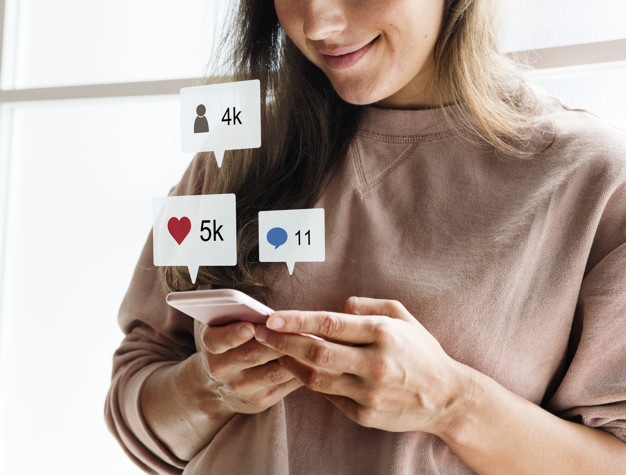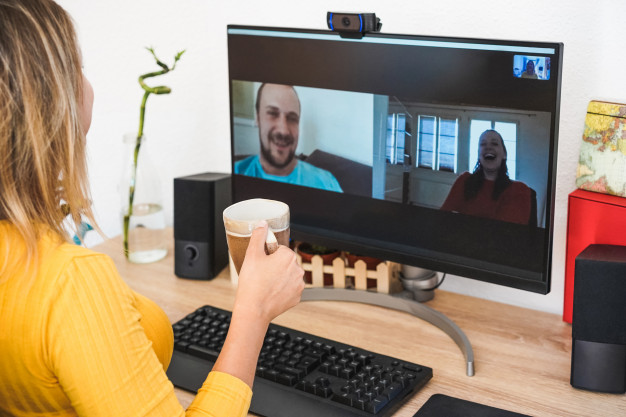The COVID-19 pandemic disrupted the lives of people around the world in ways both seen and unseen. In addition to the visible effects of the pandemic – notably the closure of businesses and schools, the elimination of non-essential travel, and increased isolation due to “stay at home” orders and social distancing – the pandemic appears to have caused widespread “collective trauma”, a term referring to the psychological impact of a society after a traumatic event. Many people have understably turned to technology for relief.
Now that COVID-19 vaccination rates continue to increase worldwide, however, many newly-reopened businesses, schools, and other institutions are grappling with the role that technology can play in our post-pandemic world. After more than a year of increasingly blurring the lines between work/school and home, online and in-person, how can we achieve a mindful and healthy balance with all of this technology?
In keeping with the importance of this topic, we will be doing a series that will investigate the different types of technology and the impact it has on our emotional wellness. This blog, as our first in this series, will focus on social media and its impact on our wellbeing. After all, humans are naturally social creatures and with the opportunity for in-person connections dramatically reduced, many have looked to this particular form of technology for entertainment, health, and other forms of engagement over the last year.
What We Know About Social Media

Social media has been a lifeline for many people of late but surprisingly little attention has been paid to the implications of its expanding role in our lives. While there are no doubt benefits of connecting people, it is important to recognize that social media algorithms dictate the way we receive our information and digest it. Each of these platforms are owned and operated by businesses which profit off of user engagement, so their clearest objective is to capture and hold their users’ attention. Even before the pandemic these social media platforms were intentionally designed to be addictive and to keep their users’ attention with no end in sight. However, there can be serious consequences to your scrolling.
The Consequences of Social Media
Although the research has not quite caught up with the current situation, we know from previous health crises that the increase in media exposure has been associated with a heightened psychological distress and impaired functioning over time. While many of us have relied on these forms of technology to stay connected, previous studies have shown us that we need to be cautious against the potential harm that could exist from an over-reliance.
Even in the best of times, research suggests that all of these social media platforms – Snapchat, Instagram, Facebook, Twitter, YouTube, TikTok, etc. – can contribute to one’s anxiety, depression, and have other mental and physical consequences. Study after study has found that the more one uses social media, the more likely they are to experience anxiety and depression. These platforms can impact one’s self esteem as the user may be focused on getting as many likes as they can (and wondering why they didn’t get as many likes as their friends?), searching for validation, and FOMO – fear of missing out – which can further add to anxiety and depression.
Worse still, a 2018 British study linked the use of social media with a decrease and disruption in sleep, which – if it is continuous – can be associated with depression, memory loss, and poor academic performance.
The Type of Connection Matter
Preliminary studies performed at the height of the recent pandemic provide more context and suggest that social media is not just like its technological predecessors. A study conducted by Chao in early 2020 suggests that it is important to be mindful about which platform someone uses and when, as different mediums can affect users in different ways.
The Chao study looked at 917 Chinese residents during the initial COVID-19 outbreak. Their findings suggest that people who engaged in new media such as online news sites and social media had more negative psychological outcomes as compared with those who engaged more with traditional media use such as television, radio or newspaper. This study reinforces the importance of being thoughtful about which media to engage in and how that can impact one’s psychological health.

Moreover, as the Chao study suggests, not all technology has a negative impact. In fact, research suggests that instead of using your phone to endlessly scroll through feeds of friends, family, and acquaintances, time would be better spent engaging with people in a more direct and personal way. In fact, research shows that videoconferencing can help alleviate depression and loneliness, and can further improve one’s overall social support. With that in mind, spending time connecting via videoconference can have the opposite effect of social media. Finding time to connect with friends and family, celebrate milestones, speak with students and colleagues, and engage with the community directly can instead positively impact one’s emotional wellness.
Finding a Balance
We live in an hyper-connected world where many of us can easily access our social media accounts from our computer, tablets and phones. It is tempting to turn to your social media feed and see what others are doing as a way to feel connected but just like empty calories, social media use should be monitored. Few people track the time they spend using social media but those that do are often surprised by the extent of their usage. While it can be hard to completely disconnect, understanding how these platforms work and finding a balance is key. There are even apps that will limit your social media – since we sometimes can’t rely on ourselves to do it! Be mindful and thoughtful of when and how you use social media. As we slowly start to open up again, we will hopefully embrace old friends and make new ones. Along the way we should reflect on how invaluable one-on-one contact is and it’s inability to be replaced even by the most eye-catching social media platform.
Category: Health & Safety Abroad, International Students in the USA, School Resources
Tags: anxiety and depression, collective trauma, connecting people, Consequences of Social Media, COVID-19 pandemic, COVID-19 vaccination, decrease and disruption in sleep, emotional wellness, Facebook, hyper-connected world, Instagram, negative psychological impact, post-pandemic world, psychological distress, psychological health, self esteem, Snapchat, social media, social media and its impact on our wellbeing, social media platforms, TikTok, Twitter, videoconferencing and its positive impact, YouTube


Recent Comments